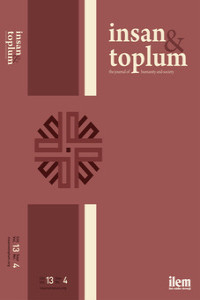Öz
Despite the dramatic increase in the international democracy promotion efforts toward the Arab Middle East in the period between the September 11, 2001 attacks and the Arab uprisings in 2010, the authoritarian regimes in the region have paradoxically become more entrenched. This paper tries to analyze this puzzling development by taking democracy promotion toward the Arab Middle East as an international regime. By examining the constitutive norms, procedures, and the institutions of this international democracy promotion regime, I argue that the weak character of the regime produced what I call ‘reverse emergent properties’—contradictory systemic effects that cannot be reduced to its individual parts, in this case the individual democracy promotion initiatives.
Anahtar Kelimeler
democracy promotion Arab Middle East democracy authoritarianism international regimes
Kaynakça
- Gvosdev, N. K., & Takeyh, R. (2003). Democratic Impulses versus Imperial Interests: America’s New Mid-East Conundrum. Orbis, 47(3), Summer.
- Hasenclever, A., Mayer, P., & Rittberger, V. (2004). Theories of International Regimes. Cambridge University Press.
- Hurd, E. S. (2008). The Politics of Secularism in International Relations. Princeton University Press.
- Katzenstein, P. (1996). The Culture of National Security: Norms and Identities in World Politics. Columbia University Press.
- Keohane, R. (1984). After Hegemony: Cooperation and Discord in the World Political Economy. Princeton University Press.
- Krasner, S. D. (1982). Structural Causes and Regime Consequences: Regimes as Intervening Variables. International Organization, 36(2), Spring.
The Reverse Emergent Properties of The International Democracy Promotion Regime in The Arab Middle East
Öz
Despite the dramatic increase in the international democracy promotion efforts toward the Arab Middle East in the period between the September 11, 2001 attacks and the Arab uprisings in 2010, the authoritarian regimes in the region have paradoxically become more entrenched. This paper tries to analyze this puzzling development by taking democracy promotion toward the Arab Middle East as an international regime. By examining the constitutive norms, procedures, and the institutions of this international democracy promotion regime, I argue that the weak character of the regime produced what I call ‘reverse emergent properties’—contradictory systemic effects that cannot be reduced to its individual parts, in this case the individual democracy promotion initiatives.
Anahtar Kelimeler
democracy promotion Arab Middle East democracy authoritarianism international regimes
Kaynakça
- Gvosdev, N. K., & Takeyh, R. (2003). Democratic Impulses versus Imperial Interests: America’s New Mid-East Conundrum. Orbis, 47(3), Summer.
- Hasenclever, A., Mayer, P., & Rittberger, V. (2004). Theories of International Regimes. Cambridge University Press.
- Hurd, E. S. (2008). The Politics of Secularism in International Relations. Princeton University Press.
- Katzenstein, P. (1996). The Culture of National Security: Norms and Identities in World Politics. Columbia University Press.
- Keohane, R. (1984). After Hegemony: Cooperation and Discord in the World Political Economy. Princeton University Press.
- Krasner, S. D. (1982). Structural Causes and Regime Consequences: Regimes as Intervening Variables. International Organization, 36(2), Spring.
Ayrıntılar
| Birincil Dil | İngilizce |
|---|---|
| Konular | Ortadoğu Çalışmaları |
| Bölüm | Araştırma Makaleleri |
| Yazarlar | |
| Yayımlanma Tarihi | 18 Aralık 2023 |
| Yayımlandığı Sayı | Yıl 2023 Cilt: 13 Sayı: 4 |

